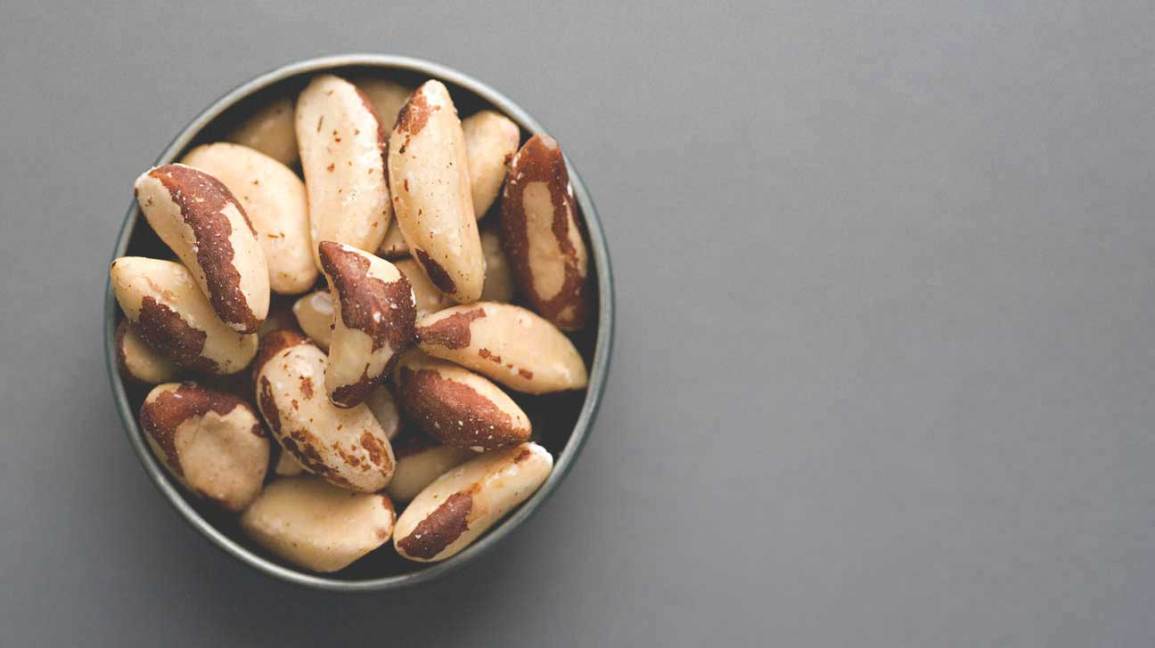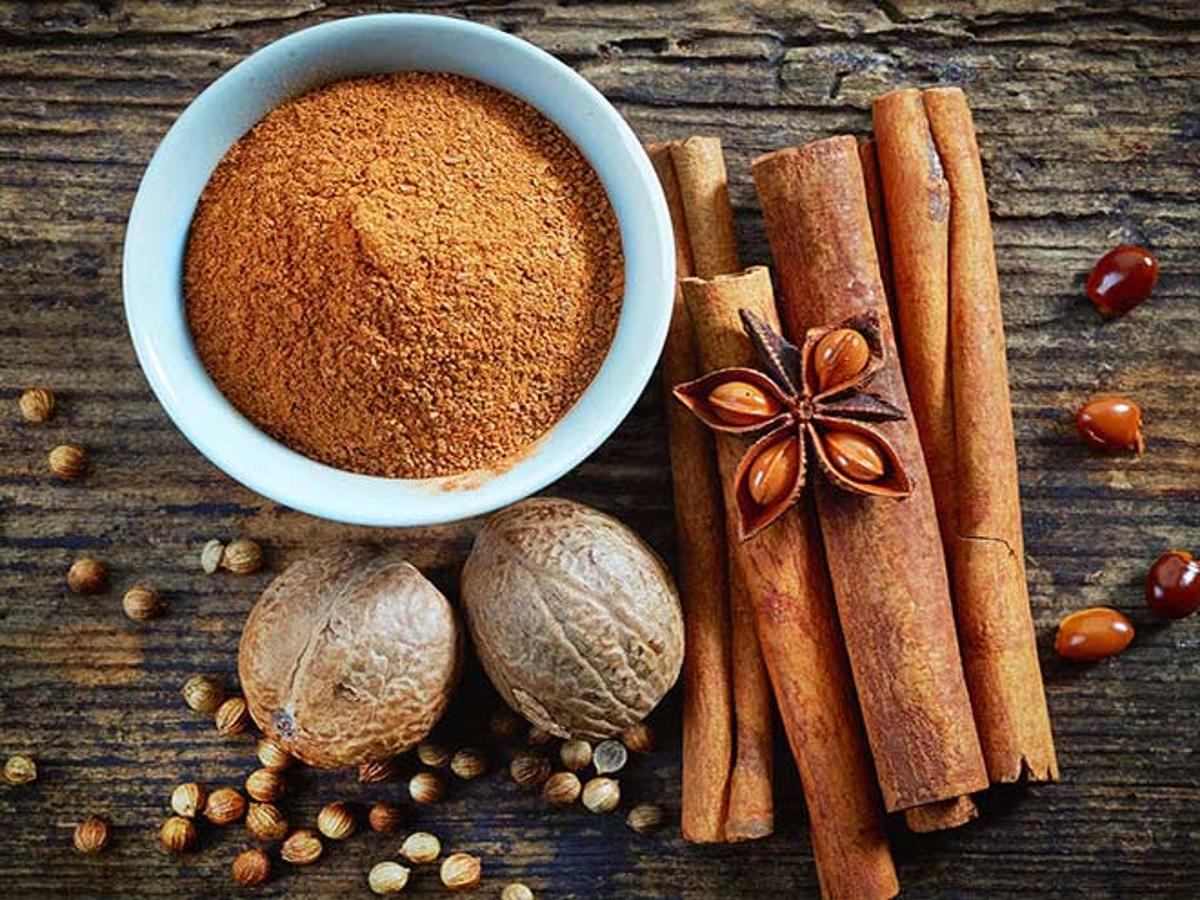Health
Benefits of coconut water in pregnancy

Discover the benefits of coconut water in pregnancy.
Coconut water is a clear, sweet, energizing isotonic drink that helps your body replenish lost fluids. Also known as Nariyal Pani and Elaneer in India, it is known for its versatility and countless nutritional benefits.
IS IT SAFE TO CONSUME COCONUT WATER DURING PREGNANCY?
Yes, it is safe to drink coconut water, but in moderation, as it contains natural vitamins and minerals.
Having coconut water in the first trimester helps curb dehydration resulting from morning sickness. It’s also good for heartburn and constipation, common symptoms of pregnancy.
You can drink coconut water at any time, but the best time is early in the morning. It is healthier, as the electrolytes and nutrients can be easily absorbed when the stomach is empty.
The nutritional benefits present in a cup of coconut water include:
•Calories 46
•Sodium 252mg
•600mg potassium
•Carbs 8.9 grams
•Dietary fiber 2.6 grams
•Sugars 6.26 grams
•Calcium 6%
Benefits of coconut water in pregnancy
You can reap its benefits only when you consume fresh water, as it begins to ferment when left open and exposed to air.
1. NATURAL DIURETIC:
During pregnancy, uric acid levels should be normal in your body system. Coconut water is a diuretic and increases the need to urinate due to the presence of potassium, magnesium, and minerals.
They help eliminate toxins and cleanse the urinary tract. Thus, it improves kidney function and prevents kidney stones and infections. It also prevents urinary tract infections, which reduces the chances of preterm labor.
2. OFFERS ESSENTIAL ELECTROLYTES:
The need for electrolytes increases during pregnancy because conditions like morning sickness, nausea, and diarrhea dehydrate the body. Coconut water supplies all five essential electrolytes: minerals, sodium, calcium, potassium, and phosphorus, which calm the body and provide energy.
These electrolytes transmit electrical charges in your body and aid in muscle function. They also help maintain your body’s pH levels and control blood pressure levels. It is known to have cooling properties, which prevent conditions such as bilious fever and vomiting.
3. RELIEVES HEARTBURN AND CONSTIPATION:
Hormonal changes during pregnancy lead to various problems like heartburn, constipation, and indigestion. The rich content of dietary fiber in coconut water strengthens the digestive system, improves digestion, regulates pH levels, and prevents constipation.
Ayurveda considers young coconut water to be an excellent laxative. Improves metabolism and detoxifies the body. Coconut water is a natural acid neutralizer and thus prevents heartburn.
4. TREAT INFECTIONS:
Coconut water is rich in vitamins, essential minerals, and antioxidants, which boost your immune levels, providing resistance to infections. It contains lauric acid, a medium-chain fatty acid responsible for the production of a powerful antiviral monolaurin, Michelle-Lee Young writes in the book “Two Trees and Twelve Fruits That Will Change Your Life Forever.” Lauric is a disease-fighting acid that kills harmful bacteria and infections like the flu, and HIV, and retains good bacteria.
5. IMPROVES HEART HEALTH:
Low electrolyte level increases blood pressure. Drinking coconut water improves levels of potassium, magnesium, and lauric acid, which help regulate blood pressure. Improves good cholesterol and fights bad cholesterol.
The vitamins, essential proteins, and electrolytes in coconut water control sugar levels, and blood pressure levels, and improve circulation. A glass of coconut water every day is particularly helpful in the last trimester when there is increasing stress from labor that can increase your blood pressure.
6. MAINTAINS A HEALTHY WEIGHT:
Coconut water is fat-free and low in calories. As pregnancy adds extra weight to your body, coconut water prevents fat accumulation by removing bad cholesterol. It is an excellent replacement for sugary drinks and helps both the mother and the growing fetus to be healthy and fit.
7. NATURAL DRINK:
Coconut water is a tasty natural drink. It has no artificial flavors or harmful components. It is safe for you and your growing fetus as none of its components affect your health.
8. ENERGIZE AFTER TRAINING:
Coconut water is a natural isotonic drink, which helps you gain energy when suffering from dehydration, fatigue, and exhaustion. It is a great revitalizer
. If you exercise regularly to stay fit and strengthen your pelvic muscles, you can opt for coconut water as an energy drink. Hydration also improves skin elasticity, limiting the stretch marks that develop during pregnancy.
9. LOW SUGAR CONTENT:
Excessive sugar intake can lead to an increase in overall blood sugar levels. Coconut water has less sugar than other sports and energy drinks. You won’t gain pregnancy weight, and a diet low in simple sugars will reduce your risk of getting gestational diabetes.
10. ACCELERATES THE GROWTH OF THE FETUS:
Coconut water offers all the nutrients to the mother, essential to maintain and improve her health. Thus, it improves the health, growth, and proper nutrition of the unborn baby.
11. IMPROVES AMNIOTIC FLUID LEVELS:
Drinking coconut water improves the overall health and environment of your growing fetus. Coconut water taken especially in the third trimester increases amniotic fluid levels and improves blood volume and circulation.
ARE THERE ANY SIDE EFFECTS OF COCONUT WATER DURING PREGNANCY?
There is no evidence that coconut water has adverse effects on pregnancy. Like any other fruit or vegetable juice, it also appears to be safe. But there are two things to keep in mind:
•Coconut milk contains sodium, which may not be the right choice for pregnant women with preeclampsia.
•Ripe coconut water can cause constipation.
HOW MUCH COCONUT WATER CAN A PREGNANT WOMAN HAVE?
Moderation is always the key when it comes to eating a healthy diet. You can drink up to a glass of coconut water a day.
Consume the water soon after opening, as a fresh one will contain rich nutrients. Use a clean straw or pour it into a glass and drink.
It is always good to prefer natural coconut water to canned or bottled.
Do not consume coconut water if you react or do not like its taste.
HOW TO SELECT THE CORRECT COCONUT?
To enjoy the various benefits of coconut water, you need to know how to select them properly. These tips can help you buy fresh and tender coconut.
A fresh coconut will be light and sweet and will not contain coconut meat, the white, meaty, tender substance. A ripe or stale one will taste sour.
Selection: Choose medium-sized, clean, green walnuts, as they contain large amounts of water. Don’t choose coconuts that have hard brown shells and gray patches as they indicate ripe nuts.
Water: Shake the coconut vigorously near your ear to check for water. Select the ones that make a good splashing sound. A fresh coconut will contain almost a cup of water.
If you want to store coconuts at home, keep them in a cool place.
BENEFITS OF COCONUT MEAT DURING PREGNANCY:
1. GENERATION OF BREAST MILK:
Regular consumption of coconut meat during pregnancy improves the supply of breast milk after childbirth. Your baby will receive nutritious and rich breast milk. Also, coconut oil helps in the generation of breast milk.
It is also good during the lactation phase as it contains lauric and capric acids. These acids have antiviral, antibacterial, and parasiticidal effects, which protect the baby from diseases.
2. IMPROVES BLOOD CIRCULATION:
Blood volume doubles during pregnancy, causing swelling of the feet and legs. Poor blood circulation aggravates the condition. Coconut consumption improves blood circulation and prevents swelling and pain in the legs.
3. HELPS DIGESTION:
Consuming coconut meat and water prevents constipation as tender coconut meat acts as an excellent laxative. It is one of the best benefits of consuming a coconut in any form during pregnancy.
4. BETTER SLEEP:
Having coconut in combination with poppy seeds and ghee will improve your sleep cycle.
5. INCREASES METABOLISM:
When the coconut is mixed with spices, it helps boost metabolic activities in pregnant women.
COCONUT MILK DURING PREGNANCY:
Coconut milk is a thick, milky liquid obtained by grinding grated coconut meat. It is also an essential ingredient in many foods, especially Southeast Asian dishes.
Coconut can be consumed in any form due to its amazing health benefits. Coconut milk helps increase body fuel. It is completely safe to drink unless you are allergic to it.
BENEFITS OF COCONUT MILK DURING PREGNANCY:
1. ENHANCE IMMUNITY:
Coconut milk contains lauric acid, which is an antibacterial and antiviral fat, useful for pregnant women. This type of fat helps improve the immune system, according to the book “Coconut Oil and the Immune System” by Sherri Neal. The long-chain fatty acids straighten the blood vessels and reduce any blockages in the heart, thus improving the condition of the heart as well.
2. OTHER BENEFITS INCLUDE:
•It contains good amounts of iron, which can treat anemia.
•Improves digestive problems.
•It offers relaxation to the muscles and the nervous system.
•Controls blood sugar levels and blood pressure
•Relieves joint pain and scratches
•Makes your body fit and helps you lose weight
HOW TO PREPARE FRESH COCONUT MILK?
It is advisable to make coconut milk at home instead of opting for a packaged one.
Grate a whole coconut and add a cup and a half of hot water.
Let the mixture cool to room temperature.
Once the mixture cools down, strain to get the milk.
Coconut milk taken directly from fresh coconuts will contain approximately 450 calories and 50 g of fat. A cup of coconut milk (approximately 240 g) has the following nutritional values:
•Calories 550
•Fats 50.2gm (all types of fats)
•Cholesterol 0
•Sodium 40gm
•Carbohydrates 14gm (in 250gm of milk)
•Proteins 6gm
•Vitamin C 11%
•Iron 22%
•Calcium 4%
IS CANNED COCONUT MILK GOOD DURING PREGNANCY?
It’s safe to have canned coconut milk during pregnancy, but you need to make sure the can isn’t corroded, rusted, expired, or stored at dangerous temperatures.
Coconut milk contains considerable amounts of saturated fat, that is, 3 g in a tablespoon. Eating too much-saturated fat will increase the levels of good and bad cholesterol in the body. In the case of canned milk, you must take into account your level of consumption, since you should not exceed your daily requirement.
In addition to the above, other reasons why you may not choose canned coconut milk are:
1. BISPHENOL A (BPA):
It is a chemical that is typically used in the lining of cans used for packaged foods. This BPA can gradually leach into acidic, fatty, or salty foods like coconut milk, vegetables, tomatoes, and soups. One study claims that there is a relationship between high levels of BPA in mothers and neurobehavioral problems in babies.
2. GUAR GUM:
Guar gum is an additive present in canned coconut milk. It is a galactomannan, a polysaccharide, and is primarily a ground endosperm of guar beans.
There have been complaints such as severe abdominal cramps, indigestion, flatulence, and diarrhea, as beans are difficult to digest. In a clinical experiment, patients with intestinal problems showed improvement when they stopped using canned coconut milk in their diet.
3. FRUCTOSE MALABSORPTION:
It is a digestive disease characterized by impaired transport of fructose (a simple sugar found in fruits, vegetables, and honey) through the small intestine. Increased fructose levels in the gut cause bacterial overgrowth.
Therefore, it reduces the absorption of water in the intestine. Pregnant women with inflammatory bowel disease (IBD) and irritable bowel syndrome (IBS) are highly affected by fructose malabsorption.
According to nutrition data, coconut milk contains sugar, including fructose. Therefore, it should be avoided by those affected by IBD and IBS disorders.
Health
8 shocking health benefits of selenium

Table of Contents
Health
15 shocking health benefits of coriander leaves

Table of Contents
Discover the 15 shocking health benefits of coriander leaves
There are many health benefits of coriander leaves that you can get which are very helpful as disease prevention and natural treatment method.
Besides, it is very easy to consume these coriander leaves, since you can combine them with other spices when you prepare your food.
Here are several health benefits of coriander leaves that you can get by consuming them in your diet.
1.- Antibiotic
The first health benefits of coriander leaves that you can get are for the antibiotic effect.
Especially when it is used as a treatment for digestive problems, for example, diarrhea that causes pathogens, so they need some antibiotics to cure it.
The reason is that within this plant there are borneol chemicals that can treat various health symptoms such as measles, gastric inflammation, hemorrhoids, flu, vertigo, high blood pressure, vomiting, breast inflammation, and even impotence.
2.- Antioxidant
Many studies are done to show the effectiveness of coriander leaves as an antioxidant.
Among the benefits of coriander leaves, there are antioxidant substances such as chlorogenic acid and caffeic acid, capable of fighting free radicals that cause skin oxidation.
Therefore, if you consume these coriander leaves as part of your daily intake, you will be able to protect your skin from wrinkles due to that free radical.
It turns out that the health benefits of coriander leaves are also usable for cancer.
Especially since there are many types of antioxidants within these leaves that can prevent cancer, such as Vit E, Vit C, caffeic acid, beta carotene, ferulic, kaempferol, and quercetin.
These substances are especially effective in reducing oxidative stress that can cause cancer.
Therefore, if you want to reduce your chances of developing cancer, then you may want to consume coriander leaves regularly.
4.- Inflammation
Among the benefits of coriander leaves, there is one of the most important essential oils is cineole.
Also, within these leaves, there is a component of linoleate acid.
Those two substances are great, especially for protecting you from various problems, like rheumatism and arthritis.
This is also suitable to be used as a treatment for inflammation, especially that which occurs on the skin.
Within these leaves is also atsiri oil, which is especially useful when used against infections caused by bacteria and fungi.
Because there is a lot of substance available within the leaves, it can be used as an antifungal, antiseptic, and disinfectant.
The antioxidant within these leaves is very powerful, so you can even use it to treat eczema and other skin problems.
5.- Heart
The health benefits of coriander leaves are also helpful for those experiencing any problems with their heart condition.
For those who have hypertension, try to consume this because it can lower your blood pressure effectively.
Especially since the calcium and cholinergic ion within these leaves are exceptionally effective in reducing the risk of developing cardiovascular disease, which also includes heart attack and stroke.
The essential oil within these leaves will also make your heart work better.
6.- Diarrhea
Inside the leaves are several essential oils that can make your digestion system work better, such as linalool and borneol. They can make your stomach work better.
Furthermore, you can even use the leaves to cure various digestion system problems such as diarrhea.
The reason is that within the leaves is a helpful substance that can treat diarrhea symptoms such as beta phellandrene, cineole, limonene, borneol, and alpha-pinene.
These substances are known for their antibacterial properties so they can cure the symptoms of diarrhea.
You can also consume coriander leaves when you want to vomit or nausea to relieve symptoms.
7.- Cholesterol
Cholesterol is very bad, as it can cause many types of diseases when not properly treated, such as a heart attack, diabetes, stroke, and many others.
So, if you want to lower the level of available cholesterol in your blood, try consuming these coriander leaves.
The leaves that contain potassium and sodium will be able to reduce them effectively as one of the health benefits of coriander leaves.
Other types of acidic substances that are known to effectively lower the level of available cholesterol within your blood are also available within these leaves, such as linoleate acid, palmitate acid, oleate acid, askorbat acid, as well as stearate acid.
Those substances within the leaves can reduce cholesterol buildup within the vein and artery wall. What’s more,
8.- Iron
These coriander leaves are also known as a good source of iron which is very helpful for many kinds of functions in your body.
First, it is used to make your bone healthy. It is also important in the formation of hemoglobin within your blood, as it will be used to carry oxygen throughout the body.
That is why; If you lack this iron nutrient, your heart beats too fast, you will feel great fatigue and various problems in your respiratory system.
It is also an important nutrient that can prevent anemia from happening to you.
9.- Eyes
As you know, the health benefits of coriander leaves are also very useful for your eyes.
Especially because within these leaves there is a beta carotene substance which is a form of Vit A.
Vitamin A is necessary for your eyes to become healthier and maintain their condition.
Additionally, the antioxidant within the leaves can prevent various eye problems such as cataracts and even macular degeneration.
Health benefits of coriander leaves
10.- Mouth ulcer
Within the leaves, you can also find citronellol, which is a very effective antiseptic.
That is why; you can use it effectively to treat mouth ulcers as it can make the healing process faster and also make your breath feel fresh afterward.
That could be why you may find coriander leaves used as an ingredient in toothpaste.
In the old days, when there was no toothpaste, the leaves were used to eliminate bad breath.
11.- Detoxification
Detoxification is a very important thing because the heavy metal inside your body can cause many kinds of problems in the future, such as autism, dementia, and infertility.
But don’t worry, as the health benefits of coriander leaves can also be used for the detox process.
These sheets are exceptionally effective when used to remove heavy metals that are very dangerous to your body, such as aluminum and even mercury.
12.- Insomnia
There is a time when you can’t sleep even though you don’t really think about anything and aren’t even stressed during the day.
Even though your body is already tired, sometimes you still have trouble sleeping properly.
The reason could be because the chemical composition within your body is an imbalance that makes your body unable to function properly.
This will stiffen your nerves so you will have trouble falling asleep.
When that happens, you may want to try the consumption of coriander leaves, as inside you can find phytonutrients and other substances capable of balancing the chemical composition of the body.
After the chemical composition within your body balances, your nerves will relax and you can easily fall asleep.
13.- Urolithiasis
Other health benefits of coriander leave that you can get come from the natural diuretic properties that this leaf has.
Due to these properties, the consumption of these coriander leaves will be able to promote urine production.
Hence, this sheet is also very effective when used to prevent urolithiasis from occurring.
Also, these leaves that have detoxification properties will detoxify your kidney.
This may reduce the risk of developing kidney stones in the future.
That is why; it is very good for you to consume this coriander regularly.
14.- Diabetes
You should know that by consuming coriander leaves, you will be able to activate your endocrine gland to work.
Furthermore, it will also cause the pancreas to produce more insulin, thereby increasing the level of insulin within the blood.
This insulin will be able to effectively dissolve the sugar in the blood, thus lowering the blood sugar level.
This is an exceptionally important process, especially for you, who have diabetes, so your blood sugar level will decrease by consuming these leaves.
Also, even when you do not have diabetes, consuming coriander leaves may reduce your risk of diabetes.
It can also make your body metabolize sugar better.
Therefore, it is still good for everyone to consume these coriander leaves regularly
15.- Vitamin K
You should know that within these leaves, you can also find vitamin K which has many health benefits from coriander leaves.
If you lack this nutrient, then your body will not be able to process blood clotting because the blood thickening process will be favored with the use of this vitamin K.
Therefore, if you do not get enough vitamin K within your body, then you will keep bleeding every time you get hurt, which will be very dangerous for your life.
Those are several health benefits of coriander leaves that you can get and are exceptionally helpful for treating and even preventing various diseases.
Within these leaves are a large number of essential oils that you can find that also have several useful properties for your health.
You can use these leaves as a natural treatment for various symptoms because the properties these leaves contain are very powerful in treating various diseases.
But it is not only useful as a treatment, this is also useful as prevention of those diseases in the first place.
That is why; The best thing for you is that you can consume these leaves regularly as it is often used as food.
But you should know that some of you might develop allergies after consuming these leaves.
Especially those who often experience allergies to spices so you need to know if you have an allergy when consuming coriander leaves or not.
If you have an allergy, you will also experience irritation to your skin.
So, try taking a little to see the effect before consuming it directly.
Health
Side effects of too much cinnamon

Table of Contents
-

 Food1 year ago
Food1 year ago10 + Benefits of carrot juice and side effects
-

 Benefits4 months ago
Benefits4 months agoThe Benefits of Joining Gym Lumolog – Improve Your Fitness & Health
-

 Health1 year ago
Health1 year ago50 Super Healthy (And Very Often Cheap) Foods
-

 Health1 year ago
Health1 year ago5 Shocking health benefits of kinkeliba and side effects
-

 Food1 year ago
Food1 year ago8 shocking benefits of leek juice and side effects
-

 Health1 year ago
Health1 year agoBenefits of guava leaves Sensually
-

 Weight Loss1 year ago
Weight Loss1 year agoChaz Bono weight loss secret
-

 Health1 year ago
Health1 year ago13 shocking health benefits of Thai eggplant












